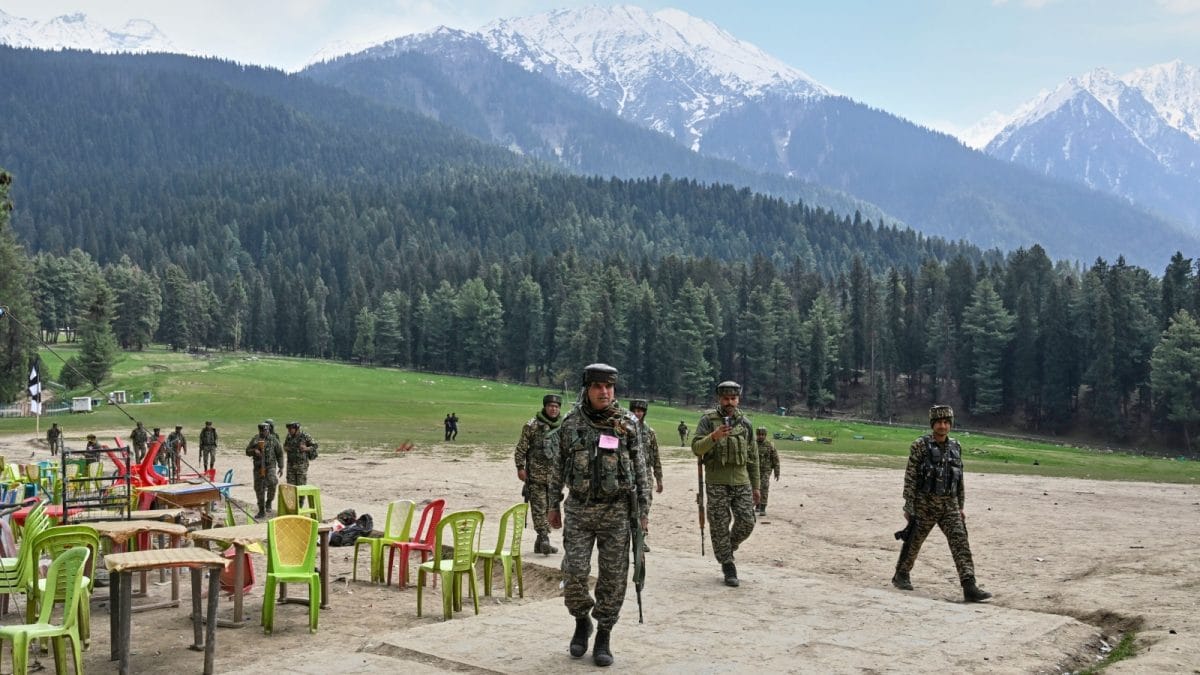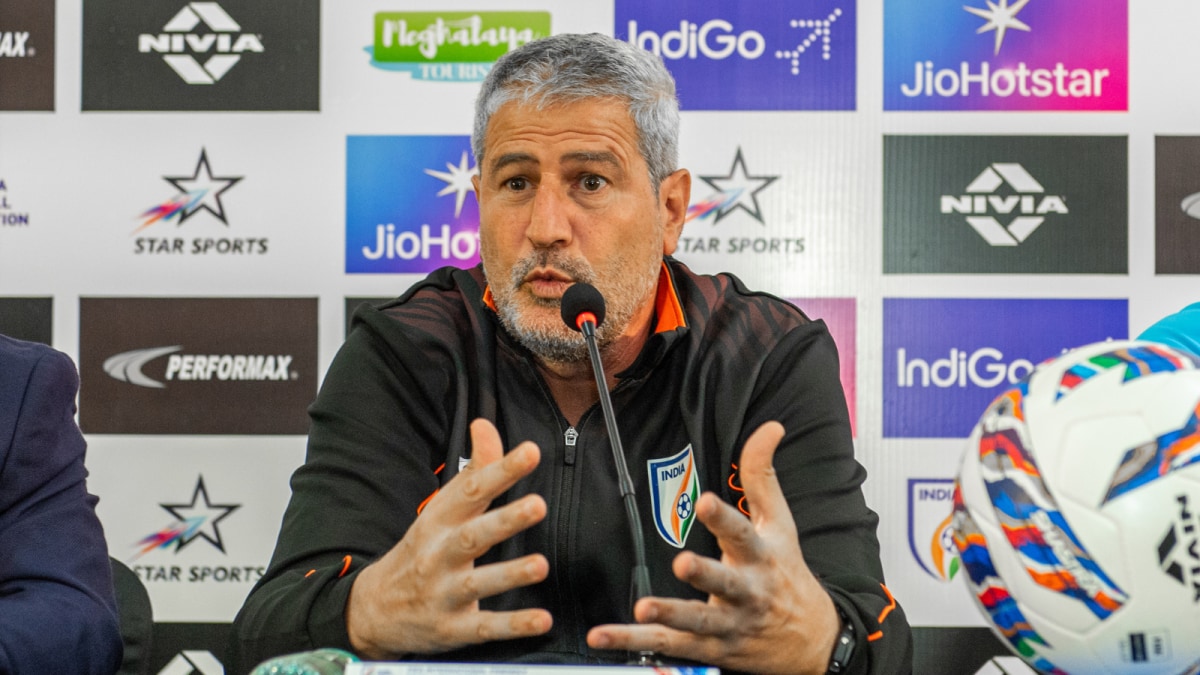ARTICLE AD BOX
Underlining that “differences should not become disputes” nor should “competition ever become conflict”, External Affairs Minister S Jaishankar told Chinese Foreign Minister Wang Yi on Monday that while India and China have made good progress in the past nine months towards the normalisation of bilateral relations, they should work to address de-escalation on the border.
This is Jaishankar’s first visit to China since the military standoff along the Line of Actual Control in eastern Ladakh began in May 2020. Meeting Wang Yi ahead of the SCO (Shanghai Cooperation Organisation) Foreign Ministers’ meeting in Tianjin on Tuesday, Jaishankar said that terrorism is a “shared concern” and India hopes that “zero tolerance for terrorism will be strongly upheld” at the meeting. He also said that “restrictive trade measures and roadblocks” should be avoided.
“Our bilateral relationship requires that we take a far-seeing approach to our ties. Since our leaders’ meeting in Kazan in October 2024, the India-China relationship has been gradually moving in a positive direction. Our responsibility is to maintain that momentum,” Jaishankar said.
Prime Minister Narendra Modi and Chinese President Xi Jinping met on the sidelines of the BRICS Summit in Kazan, Russia, on October 23 last year, after a border patrolling arrangement was announced on October 21. Since then, National Security Advisor Ajit Doval has travelled to China twice; Defence Minister Rajnath Singh and Foreign Secretary Vikram Misri have also gone there for meetings.
“In recent times, the two of us have had several opportunities to meet at international events and carry out strategic communication. It is our expectation that this will now be regular and take place in each other’s countries,” Jaishankar said.
On the border situation, where an estimated 50,000-60,000 troops are still stationed, he said: “We have made good progress in the past nine months for the normalisation of our bilateral relations. It is a result of the resolution of friction along the border and our ability to maintain peace and tranquility there. This is the fundamental basis for mutual strategic trust and for smooth development of bilateral relations. It is now incumbent on us to address other aspects related to the border, including de-escalation.”
Last month, Defence Minister Rajnath Singh told his Chinese counterpart, Admiral Dong Jun, that there is a need for a “structured roadmap of permanent engagement and de-escalation”. Jaishankar’s reiteration of the need for “de-escalation” is an important signal to Beijing.
Story continues below this ad
On the economic challenges in the relationship, Jaishankar said: “As neighbouring nations and major economies in the world today, there are various facets and dimensions of our ties. Measures towards normalising our people-to-people exchanges can certainly foster mutually beneficial cooperation. It is also essential in this context that restrictive trade measures and roadblocks are avoided.”
India has officially raised the issue of rare earth magnet supply, as Beijing has imposed restrictions on their export. China, which controls over 90 per cent of global processing capacity for the magnets used for automobiles, clean energy and home appliances, enacted restrictions in April requiring companies to obtain import permits from Beijing. India’s auto sector has been facing the brunt of these restrictions.
Jaishankar underlined that the SCO’s primary mandate is to combat terrorism, separatism and extremism. “This is a shared concern and India hopes that zero tolerance for terrorism will be strongly upheld,” he said, in a thinly-veiled reference to Pakistan-sponsored cross-border terrorism in India.
Delhi has declared a doctrine of zero tolerance to terror, and launched Operation Sindoor to strike terror locations in Pakistan and Pakistan-occupied Kashmir after the Pahalgam attack in April.
Story continues below this ad
Framing the bilateral ties in the overall context, Jaishankar said: “Stable and constructive ties between India and China are not only to our benefit, but that of the world as well. This is best done by handling relations on the basis of mutual respect, mutual interest and mutual sensitivity. We have also earlier agreed that differences should not become disputes, nor should competition ever become conflict. On this foundation, we can now continue to develop our ties along a positive trajectory.”
Jaishankar conveyed wishes to the Chinese side for a “successful SCO presidency”, and said “India is committed to ensuring good outcomes and decisions”. Stating that the two sides are marking the 75th year of the establishment of diplomatic relations, he said: “We appreciate that the Kailash Mansarovar Yatra has also resumed after a gap of five years. I thank the Chinese side for their cooperation on this matter”.
Earlier in the day, Jaishankar met Chinese Vice President Han Zheng shortly after landing in Beijing from Singapore in the second leg of his two-nation trip. He underlined that continued normalisation of India-China ties can produce mutually beneficial outcomes and an open exchange of views between the two sides is “very important” considering the “complex” global scenario.
“Our bilateral relationship, as you have pointed, has been steadily improving since the meeting between Prime Minister (Narendra) Modi and President Xi Jinping in Kazan last October,” Jaishankar said. “I am confident that my discussions in this visit will maintain that positive trajectory,” he said.
Story continues below this ad
“The resumption of the Kailash Mansarovar Yatra is also widely appreciated in India. Continued normalisation of our ties can produce mutually beneficial outcomes,” he said. “The international situation, as we meet today, is very complex. As neighbouring nations and major economies, an open exchange of views and perspectives between India and China is very important,” he said.
The Ministry of External Affairs (MEA) said Jaishankar and Wang Yi reviewed the state of the bilateral relationship. “They took note of the recent progress made by the two sides to stabilise and rebuild ties, with priority on people-centric engagements, including activities to commemorate the 75th anniversary of establishment of diplomatic relations this year… The two sides agreed to take additional practical steps, including travel to each other’s country and direct flight connectivity, for facilitating people-to-people exchanges,” it said.
Jaishankar “highlighted the positive impact of peace and tranquility in the border for the smooth development in bilateral relations and supported continued efforts towards de-escalation and border management. He underlined the need for cooperation on trans-border rivers, including resumption of provision of hydrological data by the Chinese side. He also took up restrictive trade measures and roadblocks to economic cooperation,” the MEA said.
“The discussions were constructive and forward-looking. The ministers agreed to remain in touch, including through bilateral visits and meetings,” it said.
Story continues below this ad
Meanwhile, according to a Chinese readout, “Wang Yi said the current international pattern has profoundly evolved, and unilateral protectionism and powerful bullying have brought serious challenges to the world”.
The relationship between the two countries is “not aimed at third parties and should not be interfered with by third parties. Both sides should trust each other instead of being suspicious of each other, cooperate with each other rather than compete with each other,” Wang Yi said, according to the readout.
“As the two major neighbouring oriental civilisations and emerging economies, the essence of China-India relations is how to live in harmony,” it said. The two sides should have a long-term plan, adhere to the direction of good-neighbourliness and friendship, realise the “dance of dragons and elephants”, and find a way to respect and trust each other, co-exist peacefully and seek development together, it said.



.png)
.png)
.png)


























 English (US) ·
English (US) ·